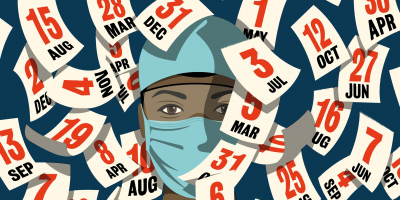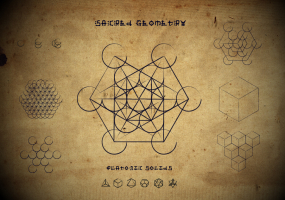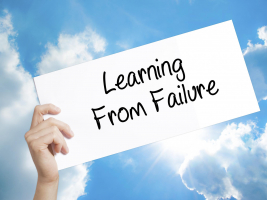Top 15 Best Books About Depression
Depression is more than just a lousy mood or a terrible day. It is a type of mood disorder that affects how you think, act, and feel. It can manifest itself in ... read more...a variety of ways and affect individuals in a variety of ways. Fortunately, there are other resources available, including the books listed below, each of which offers a unique perspective. Toplist has chosen the 15 best books about depression for you. The books listed below are authored by either mental health professionals or by people who have dealt with and overcome depression in their own lives, giving them experience on the issue. The novels have also received great consumer evaluations, and some have been on bestseller lists.
-
"It's OK That You're Not OK," written in reaction to society's treatment of grieving as something that needs to be repaired and eliminated from our lives as soon as possible, presents Megan Devine's method of dealing with devastating loss or life-shattering tragedies. She claims that grieving is just love in its most wild and agonizing form, and that it is a natural and rational reaction to loss.
Megan, who has experienced loss as a therapist and seen her partner's accidental drowning, rejects the idea of returning to a "normal" life. Instead, she substitutes it with a compromise of living a healthy life while grieving.
This book, which has been featured in the New York Times, Reader's Digest, HuffPost, and NPR's Radio Times, contains good counsel, wisdom, anecdotes, research, life suggestions, and creative and mindfulness-based activities for coping with and living with loss.
Pros:
- honest and open
- relatable and accessible writing style
Cons:
- excludes certain losses (such as parents)
- may feel repetitive to some readers
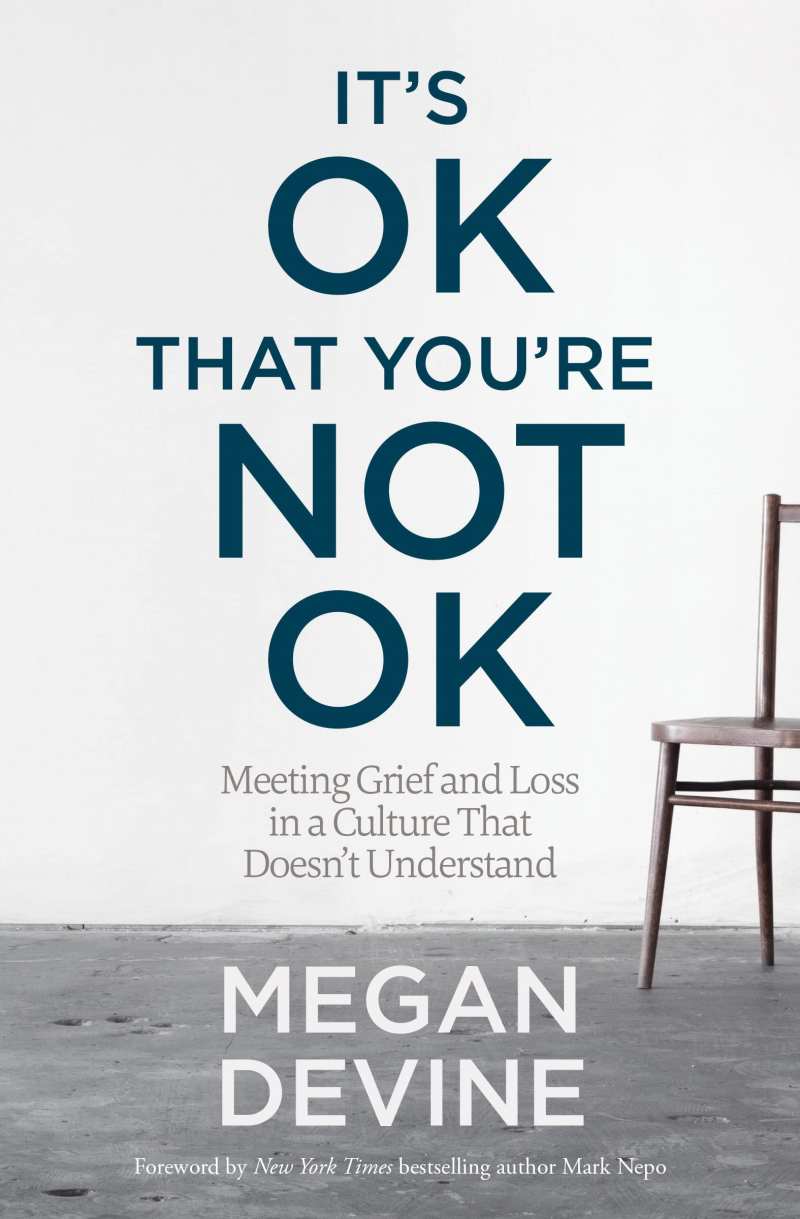
fado.vn 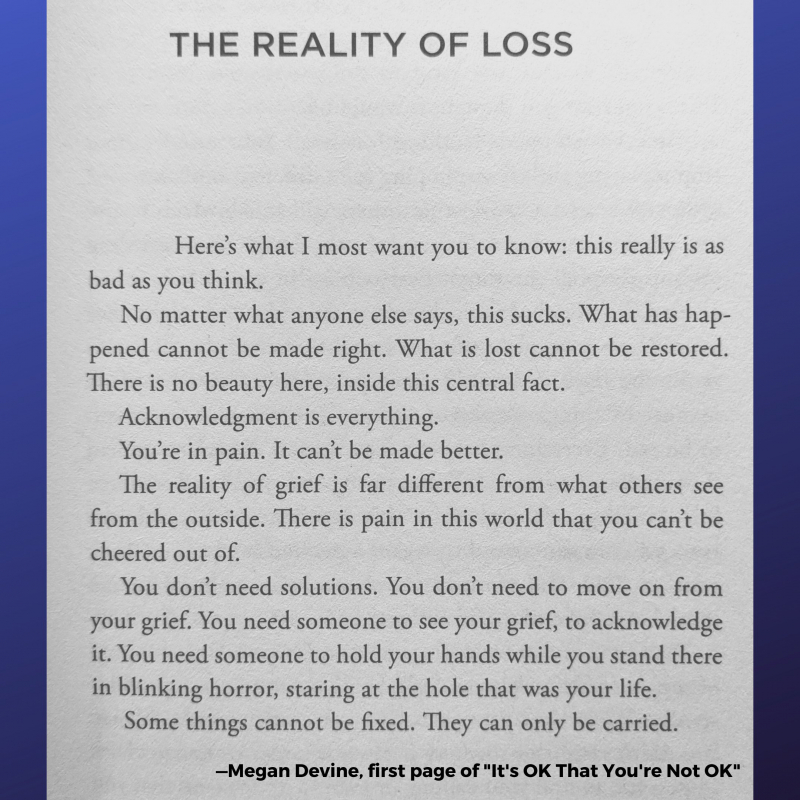
twitter.com -
To continue, Toplist would like to introduce to you "Unstuck: Your Guide to the Seven-Stage Journey Out of Depression" in the 15 best books about depression. Despite billions of dollars spent on antidepressant medicines and psychotherapy, individuals all over the world continue to struggle with depression. One of the country's most famous psychiatrists, James Gordon, now offers a practical and efficient technique to get unstuck. In his book "Unstuck: Your Guide to the Seven-Stage Journey Out of Depression," James Gordon draws on his 40-year experience as a pioneer in psychiatry to present a seven-stage approach that can help.
Gordon demonstrates to readers that there are different ways to cope with depression by combining nutritional supplements and food; movement, exercise, and dance; Chinese medicine; meditation; psychotherapy; guided imagery; and spiritual practice. The end result is a magnificent guide that gives individuals willing to say "no" to misery and drugs and "yes" to optimism and happiness the power to improve their lives.Pros:
- good variety of approaches
- well-structured and supportive
Cons:
- long-winded
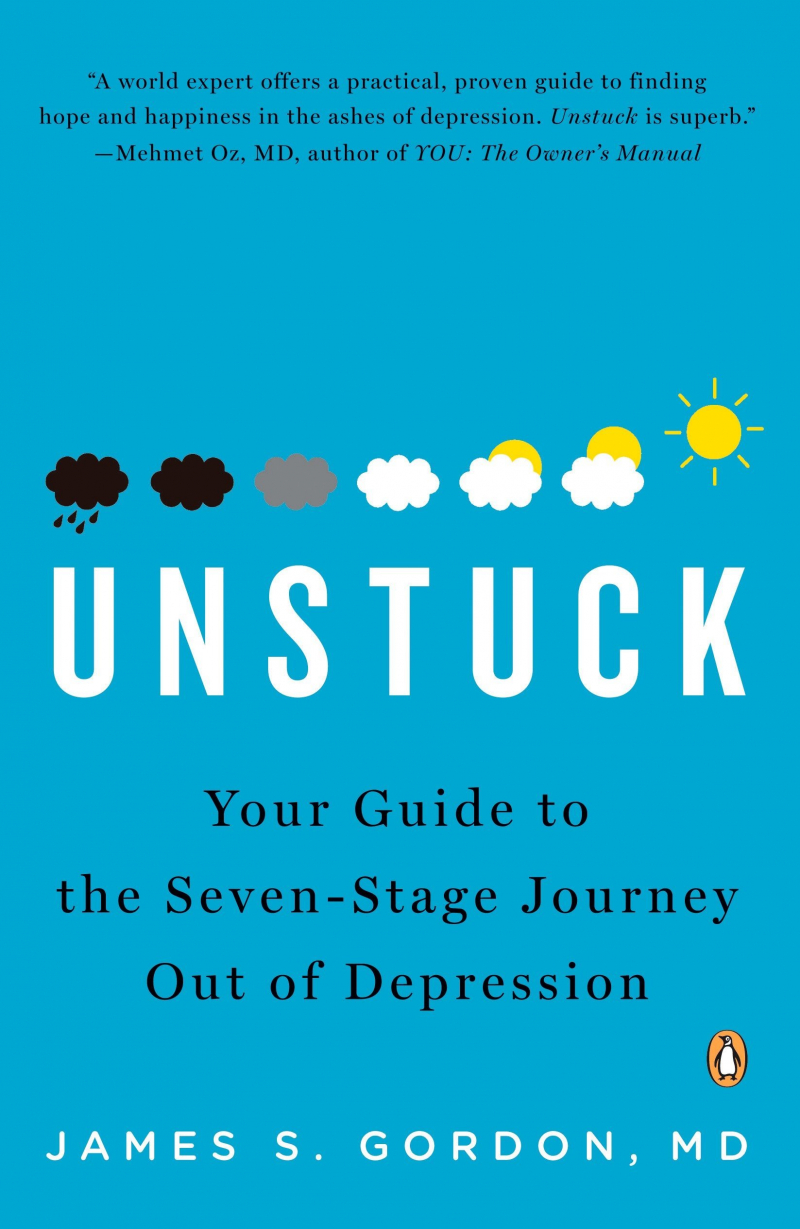
amazon.com 
James Gordon (amazon.com) -
Ryan Casey Waller, a pastor, and psychotherapist feel that humans are not supposed to control our mental illnesses. In his book, "Depression, Anxiety, and Other Things We Don't Want to Talk About," he emphasizes that mental health concerns are not a sign of spiritual failure or a lack of faith and that the battle does not have to be lonely and demoralizing, as so many others have found.
Waller mixes professional knowledge with practical theology and genuine empathy, encouraging us to discuss mental health without shame and find the need for self-awareness. He invites us to investigate the intersections of psychology, biology, and spirituality in order to uncover new ways to heal. "Depression, Anxiety, and Other Things We Don’t Want to Talk About" is among the best books about depression.
Pros:
- helpful perspective on substance abuse
- useful for people who believe in God
Cons:
- no warning when suicide is discussed
- less beneficial for people who aren’t religious
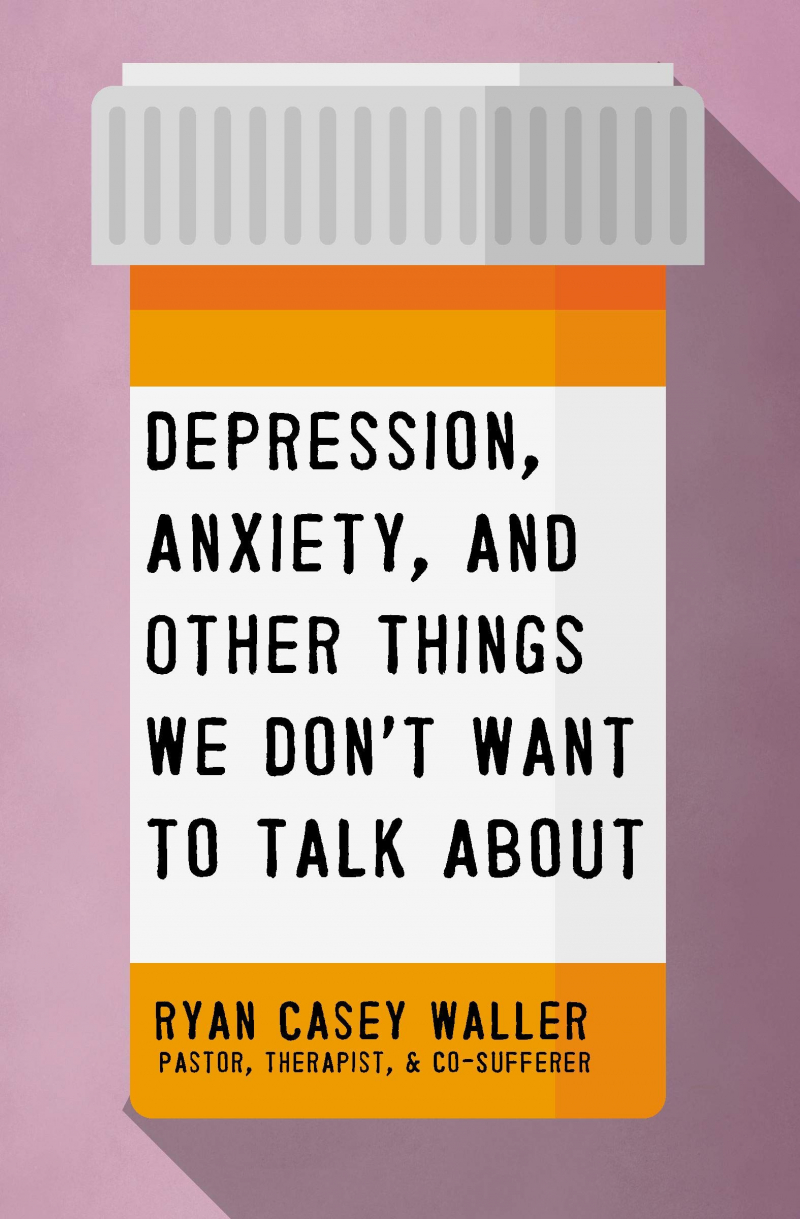
amazon.com 
Ryan Casey Waller (praise.com) -
"The Depression Cure: The 6-Step Program to Beat Depression Without Drugs - Stephen Ilardi" written by Stephen Ilardi is among the best books about depression. Depression rates have risen in your modern, fast-paced culture, and this is not by chance. Stephen Ilardi, Ph.D., reminds you in "The Depression Cure" that our minds and bodies were not built to function properly with bad sleeping and eating habits and excessive work hours. He takes readers back to basics, using examples of depression-relief techniques inspired by populations like the Kaluli of Papua New Guinea, who have been untouched by modern technology.
Ilardi is an associate professor of clinical psychology at the University of Kansas who studies mental health and depression. His Therapeutic Lifestyle Change (TLC) method is based on years of clinical research. It focuses extensively on lifestyle adjustments for antidepressant benefits, such as physical activity and social connection.
Pros:
- easy to read and follow
- well thought out
Cons:
- some tips are obvious or self-evident
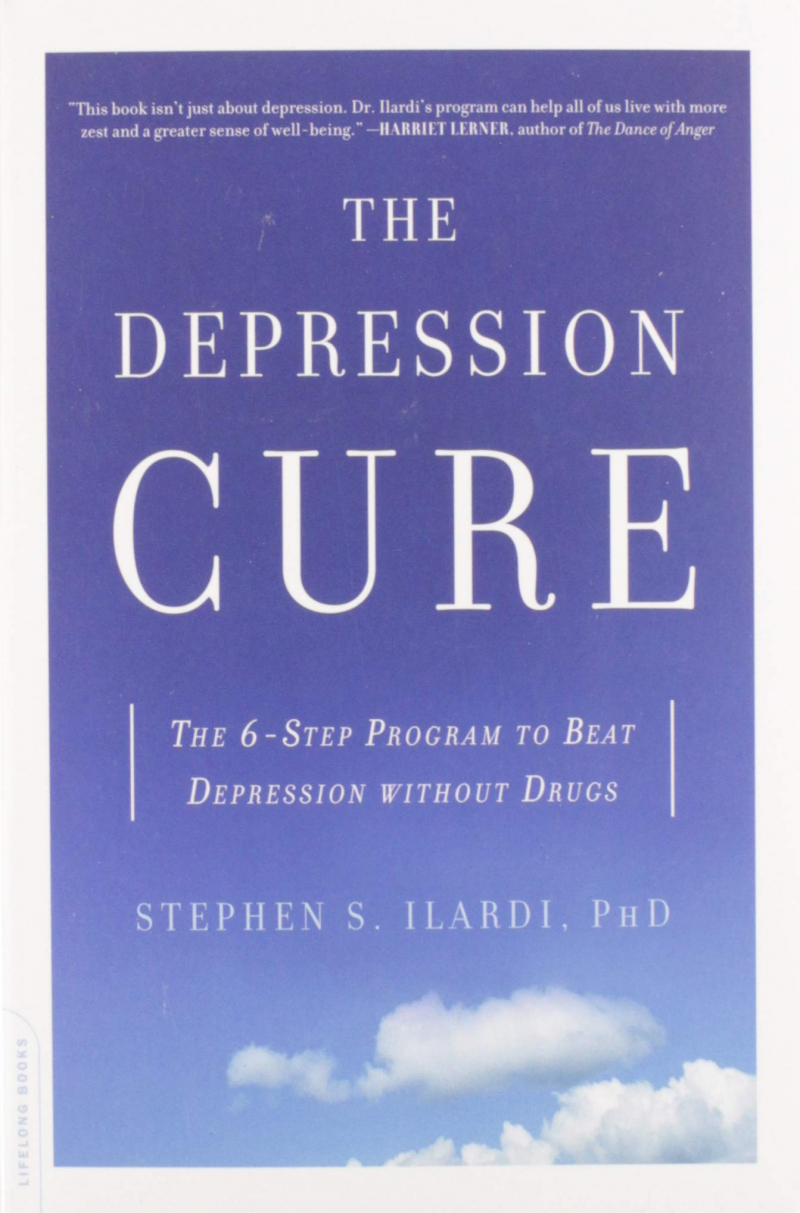
fado.vn 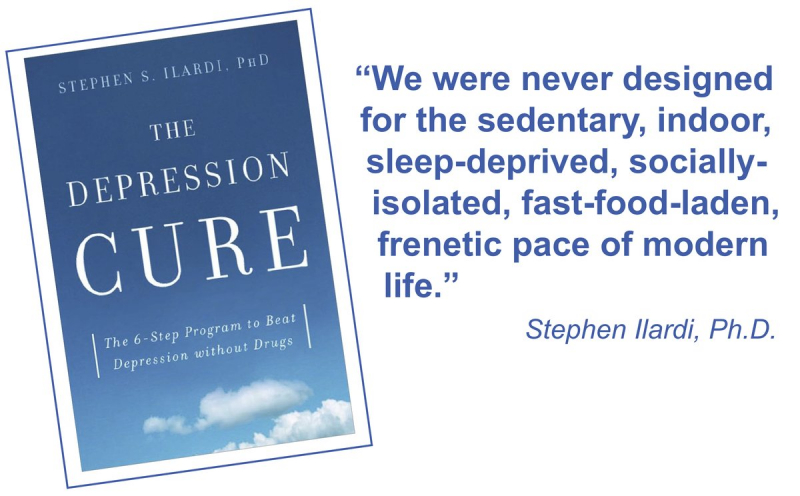
mobile.twitter.com -
The fifth one of the best books about depression that Toplist would like to introduce to you is "The Mindful Way Through Depression: Freeing Yourself from Chronic Unhappiness". Mindfulness is a Buddhist philosophy that dates back approximately 2,600 years. Breathing and being present, according to psychologists, can provide substantial mental health advantages.
"The Mindful Way Through Depression" is written by J. Mark G. Williams, DPhil, John D. Teasdale, PhD, Zindel V. Segal, PhD, and Jon Kabat-Zinn, PhD. They underline in it how attempting to just "snap out" of sadness might lead to much more bad sensations. They also look into various ways to deal with bad emotions.
Mindfulness has numerous advantages, including stress reduction, anxiety management, and enhanced emotional wellness. This book does an excellent job of discussing how mindfulness works to battle negative thought patterns and how it may be used to treat depression.Pro:
- highly informative helpful CD
- useful exercises
Cons:
- little or no real-life examples
- long-winded
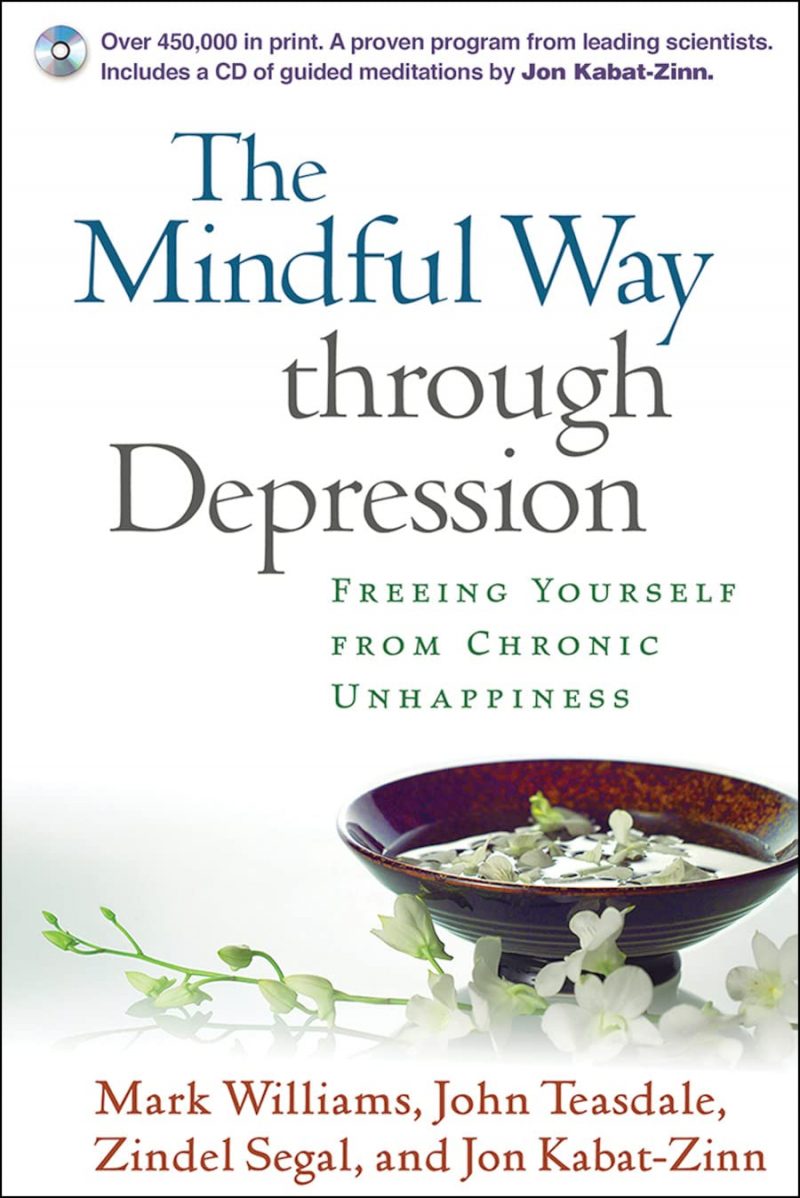
amazon.co.uk 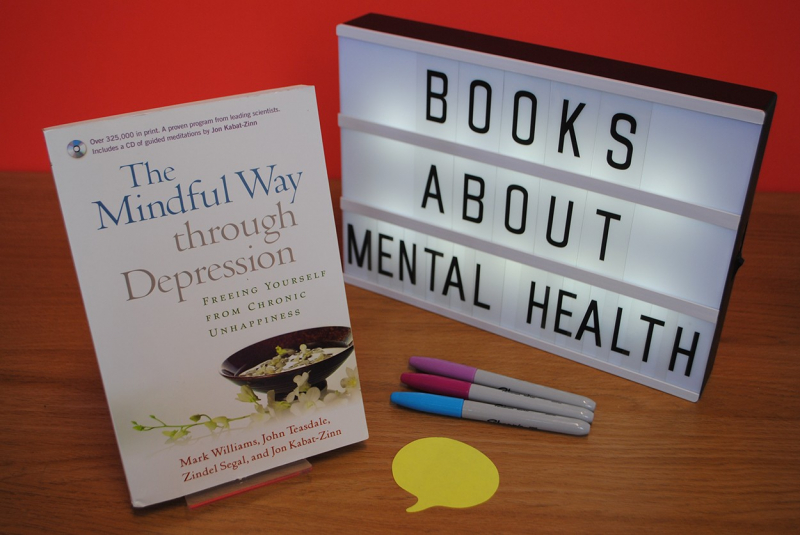
ocduk.org -
Depression might feel like a downhill spiral, drawing you into a vortex of misery, exhaustion, and indifference. In "The Upward Spiral", neurologist Alex Korb demystifies the complex brain processes that produce depression and provides a practical and successful method for recovery. Based on the most recent neuroscience research, this book offers hundreds of simple methods you can use every day to rewire your brain and build an upward spiral toward a happier, healthier existence. Â Whether you have depression or simply wish to learn more about the brain, this book provides a fascinating and instructive look at the biology behind our emotions, ideas, and behaviors.
The truth is that there is no single cure for depression, but there are several basic steps you may take to change brain activity and chemistry. Some are as simple as relaxing specific muscles to lessen anxiety or increasing your exposure to sunlight to improve your mood. Small moves in the right direction can have far-reaching consequences, offering you the ability to become your best self as you literally transform your brain, one small adjustment at a time.Pros:
- good explanation of reasons and causes
- common sense, logical approach
Cons:
- repetitive and long
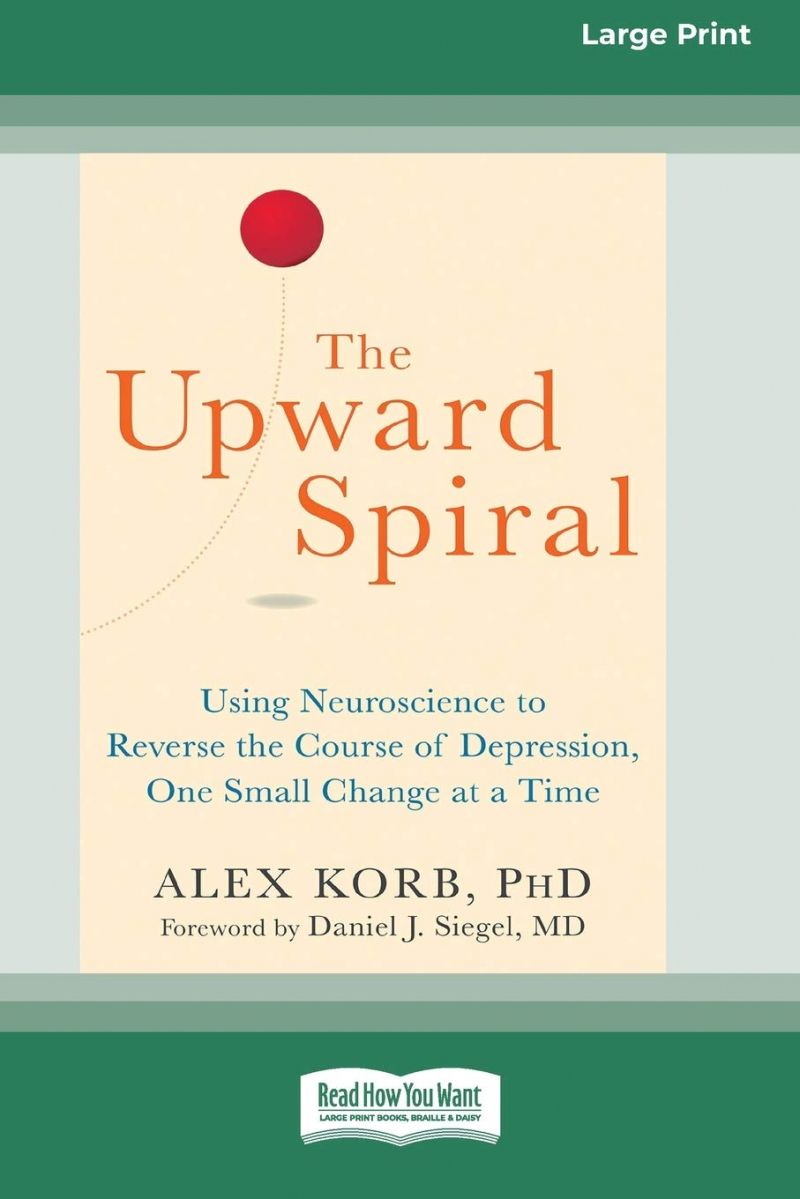
amazon.com 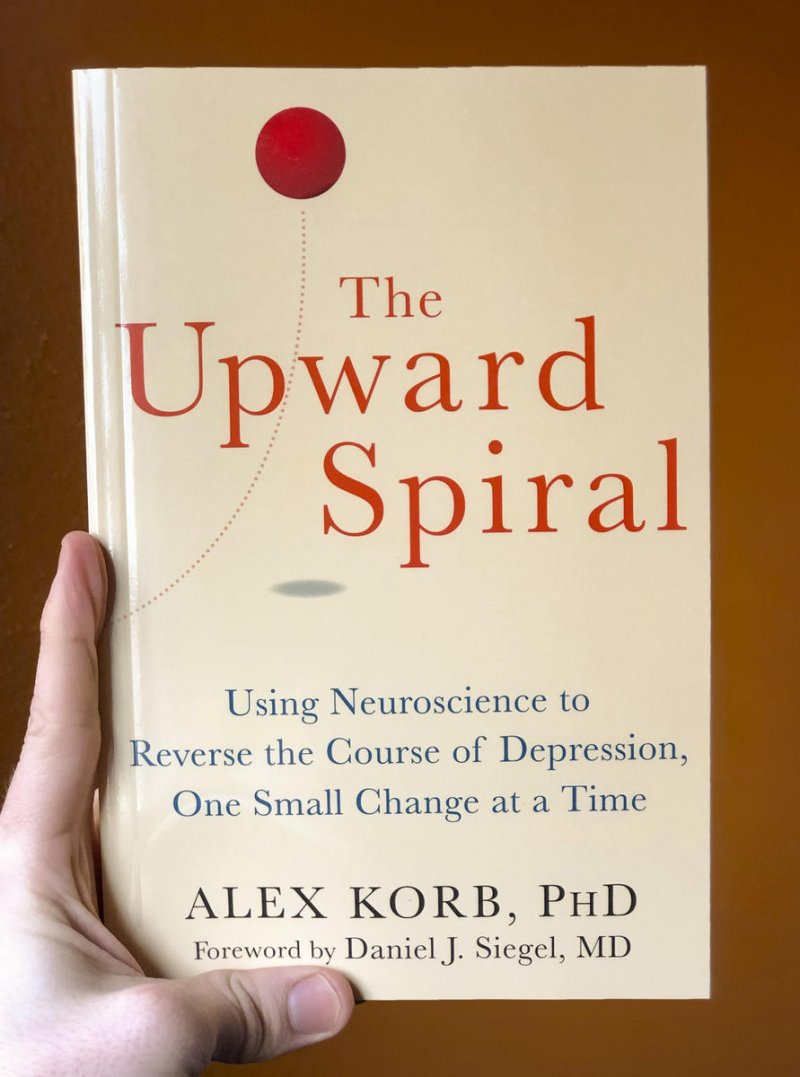
microcosmpublishing.com -
Self-help books do not appear to be effective. Few of modern life's many benefits appear capable of raising our collective mood. Even if you can obtain it, wealth does not always lead to happiness. Romance, family life, and career can all cause as much stress as they do delight. You can't even agree on the definition of "happy." So, are you pursuing a fruitless goal? Or are you simply going about it incorrectly?
Oliver Burkeman introduces us to a unique group of people who share a singular, strange way of thinking about life in reports from the past and from far abroad, looking both east and west. They contend whether they are experimental psychologists, terrorism specialists, Buddhists, hardheaded business strategists, Greek philosophers, or modern-day gurus, that in our personal lives and in society as a whole, it is our incessant striving to be happy that is making us unhappy. And that there is an alternative path to happiness and success that requires embracing failure, pessimism, insecurity, and uncertainty, all of which we spend our lives avoiding. The Antidote is the educated person's guide to comprehending the much-misunderstood concept of happiness. It is thought-provoking, counterintuitive, and ultimately uplifting.
This is a self-help book written for those who despise self-help books. Not everyone is wired to respond positively to the promise of happiness. The film "The Antidote" takes a more existential stance. This book investigates how accepting some negative feelings and experiences as a part of life can be uplifting. Many people discover that certain parts of life, such as money, romance, and family, do not totally satisfy them. While this does not apply to everyone, this book is created specifically for persons whose happiness is based on other factors.
Pros:
- helpful and clear writing and storytelling
- new approaches
Cons:
- too academic
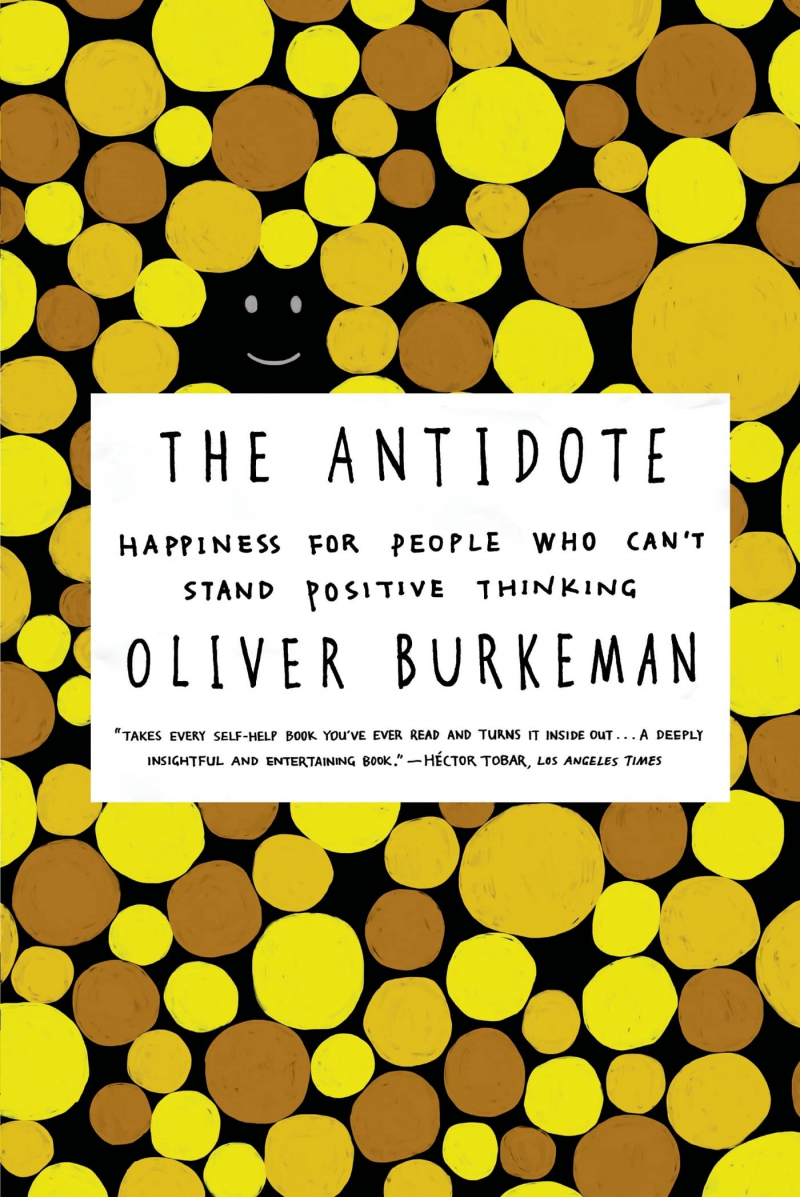
giaonhan247.com 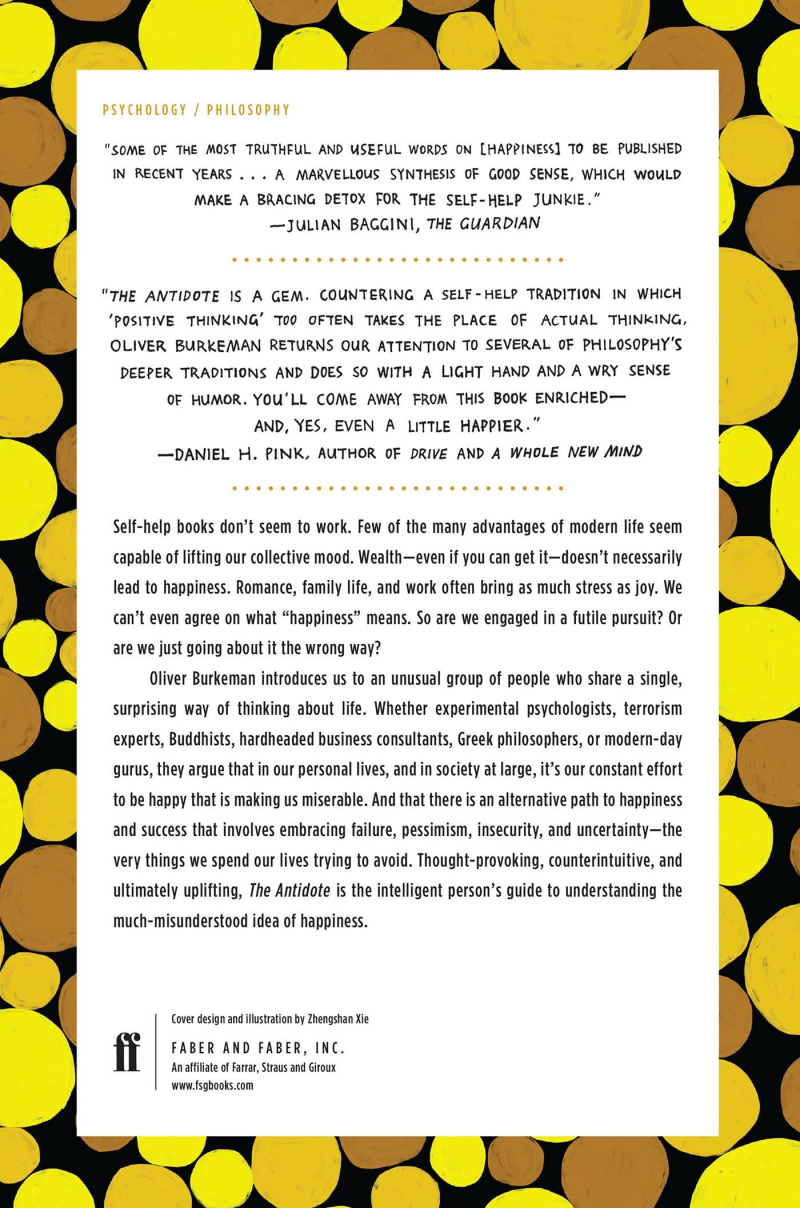
giaonhan247.com -
You are what you eat, it has been stated. According to nutritionist Joan Mathews Larson, Ph.D., imbalances, and inadequacies are the root causes of depression and anxiety. Some vitamins, herbs, supplements, and food types, such as vitamin D, the keto diet, and particular teas, have been reported to aid persons suffering from depression.
Nutritionist Joan Mathews Larson, the creator of Minnesota's prestigious Health Recovery Center, shares her breakthrough recipes for mending your emotions biochemically in "Depression-Free, Naturally". Seven Weeks to Emotional Healing will help you find the emotional well-being you've been missing your entire life by using tried-and-true all-natural methods. Inside, you'll learn how to
- Examine your emotional and behavioral symptoms.
- Recognize the mental and physical indicators of metabolic abnormalities.
- With the correct vitamins and minerals, you can overcome depression and anxiety.
- Keep your mood fluctuations in check and your health safe.
- Be surrounded by vital fatty acids
- Eat the correct meals for mental wellness - Rejuvenate your body with natural hormones
Seven Weeks to Emotional Healing can help you find balance and well-being in a way that is safer, faster, more long-lasting, and less expensive than prescription medicines or psychotherapy.
Pros:
- lots to learn about useful, well-tested treatments
Cons:
- complicated
- doesn’t account for degrees and types of depression
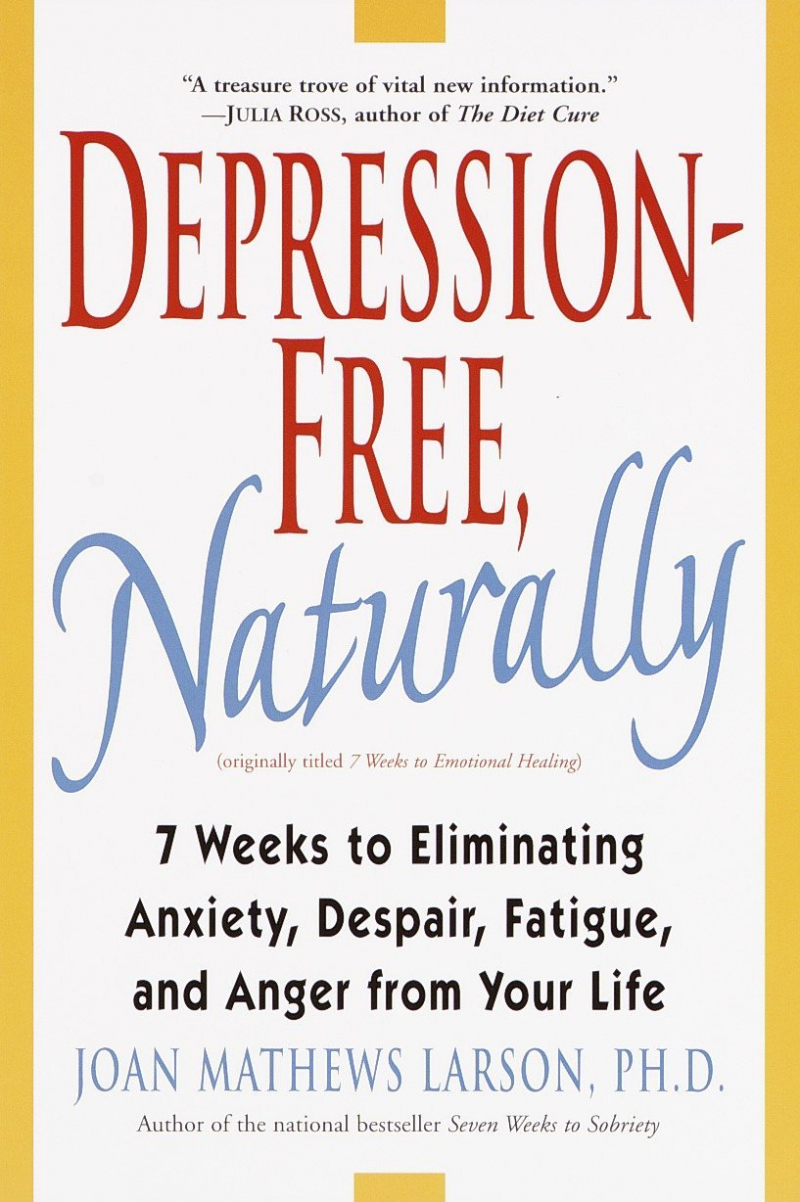
amazon.fr 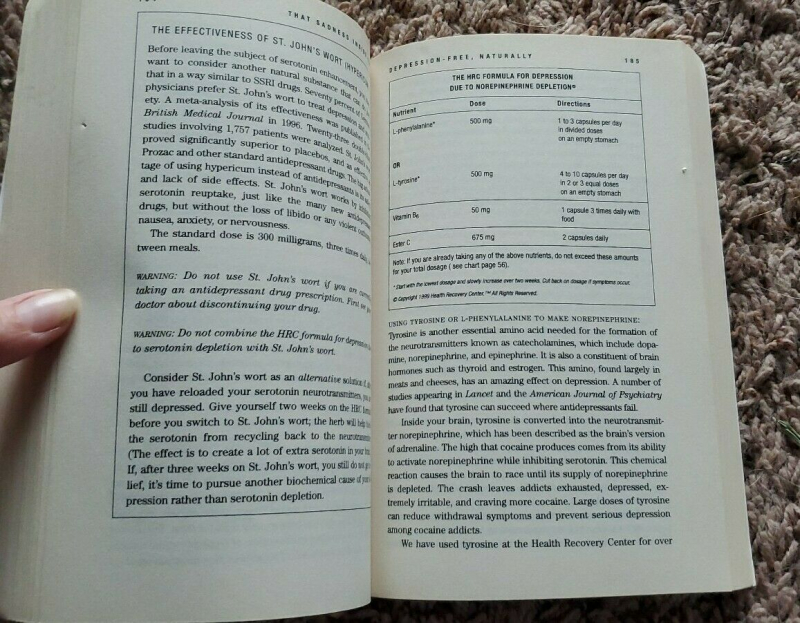
ebay.com -
"The Noonday Demon" is Andrew Solomon's National Book Award-winning, best-selling, and transformative masterpiece on depression—"the book for a generation, elegantly written, meticulously researched, empathetic, and enlightening" (Time)—now updated with a major new chapter covering recently introduced and novel treatments, suicide and anti-depressants, pregnancy and depression, and much more.
The Noonday Demon looks at depression from a psychological, societal, and scientific standpoint. Andrew Solomon explores the intricate complexities and overwhelming misery of the condition, as well as the reasons for hope, based on his own struggles with the illness and conversations with fellow patients, doctors and scientists, policymakers and politicians, medication designers, and philosophers. He tackles the difficult task of identifying the sickness, as well as describing the huge array of available medications and therapies, as well as the impact the disease has on various demographic populations around the world and throughout history. He also delves into the challenging moral and ethical issues raised by biological explanations for mental disease. Award-winning author Solomon takes readers on a trip of unparalleled range and resonance into the most ubiquitous of family secrets, with uncommon humanity, candor, wit, and erudition. His contribution to our understanding of not only mental disease but also the human condition is simply remarkable.
Pros:
- thorough and well-researched
- various helpful perspectives
Cons:
- may be too detailed for some
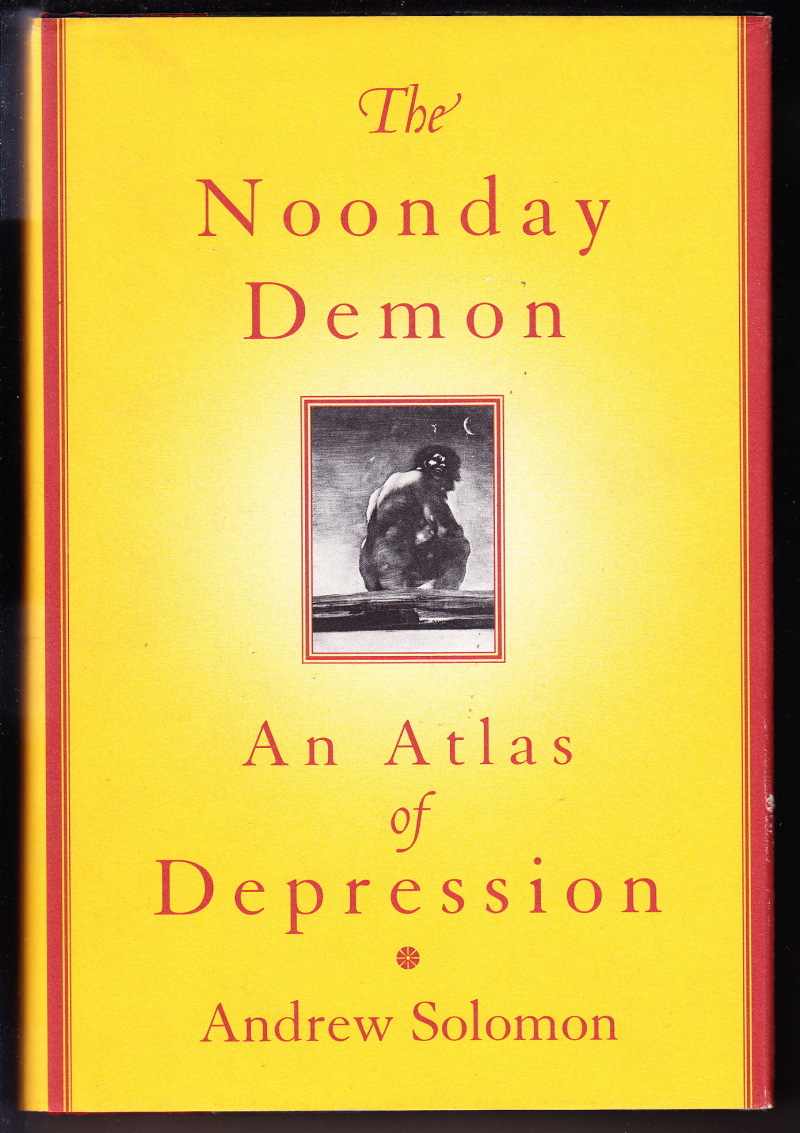
biblio.com 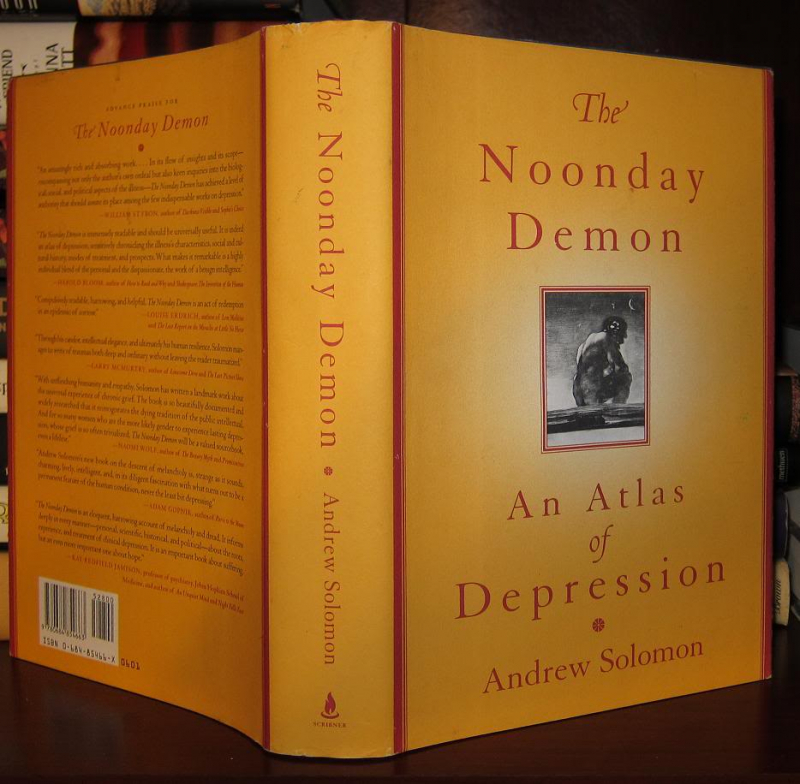
rarebookcellar.com -
Anxiety and depression are the most common mental diseases in the world, impacting 18% of the population in the United States each year. However, for many people, the road to recovery appears overwhelming, unending, or utterly out of reach. The good news is that depression symptoms such as worry, guilt, pessimism, procrastination, low self-esteem, and other "black holes" can be relieved. In "Feeling Good", renowned psychiatrist David D. Burns, M.D., discusses the extraordinary, scientifically proven procedures that will instantly improve your spirits and help you create a positive attitude toward life, allowing you to:
- Put a stop to unpleasant emotions.
- Recognize the source of your mood fluctuations.
- Deal with your guilt.
- Handle animosity and criticism with care.
- Overcome your dependence on love and acceptance.
- Increase your self-esteem.
- Feel good every day.
This game-changing book has helped millions of people overcome negative thoughts and find joy in their daily lives. You owe it to yourself to BE HAPPY! The groundbreaking book that popularized Dr. Aaron T. Beck's cognitive-behavioral therapy (CBT) and has helped millions overcome symptoms of despair and gain more self-esteem comes from renowned psychiatrist Dr. David D. Burns. Dr. David F. Maas, English Professor at Ambassador University considers David Burns' "Feeling Good" to be one of the most important works of the last third of the twentieth century.
Pros:
- interesting
- easy to read
- helpful exercises
Cons:
- an overwhelming amount of information
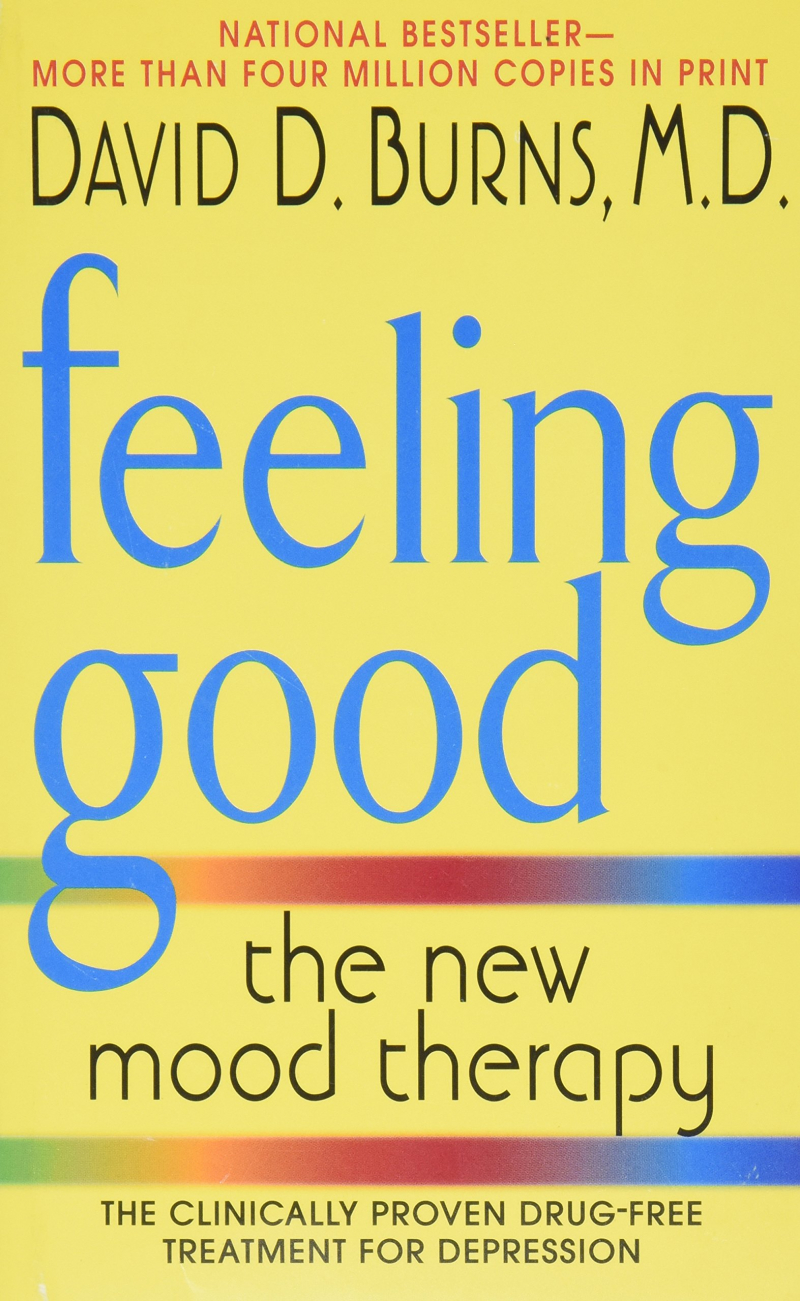
fado.vn 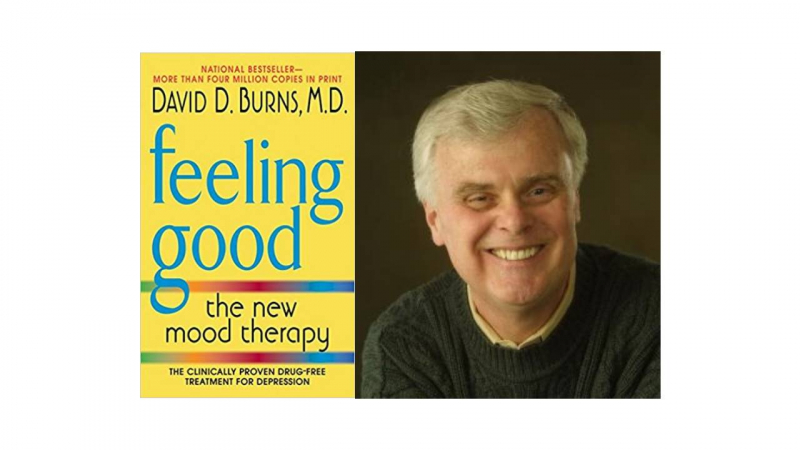
cbtschool.com -
"Change Your Brain, Change Your Life", by renowned neuropsychiatrist Daniel Amen, M.D., contains new, cutting-edge research gleaned from more than 100,000 SPECT brain scans over the last quarter-century, as well as scientific evidence that your anxiety, depression, anger, obsessiveness, or impulsiveness could be related to how specific structures in your brain work. Dr. Amen's "brain prescriptions" will be beneficial to you:
- To alleviate anxiety and panic, use basic breathing exercises to instantly quiet your inner turmoil.
- To combat depression: Learn how to fight ANTs (automatic negative thoughts) and apply brain-type-specific supplements.
- To reduce rage: Follow the Amen anti-anger diet and discover the nutrients that help to calm wrath.
- To improve memory: Learn the exact measures and practices that can assist you today to reduce your risk of Alzheimer's disease.
- To overcome impulsivity and learn to focus: The One-Page Miracle can help you achieve absolute attention.
- To Stop Obsessive Worrying: Follow the "unstuck" writing practice and discover more problem-solving techniques.
Dr. Daniel Amen, a neuropsychiatrist, presents powerful "brain prescriptions" in this entirely revised and updated edition that can help heal your brain and alter your life. Perfection in integrating cutting-edge brain research technology with a proven, user-friendly, clear, and actionable road map to safeguard and enhance brain health and functionality, according to David Perlmutter, M.D., New York Times bestselling author of Grain Brain.
Pros:
- practical advice and examples
- useful information about the brain and depression
Cons:
- redundant
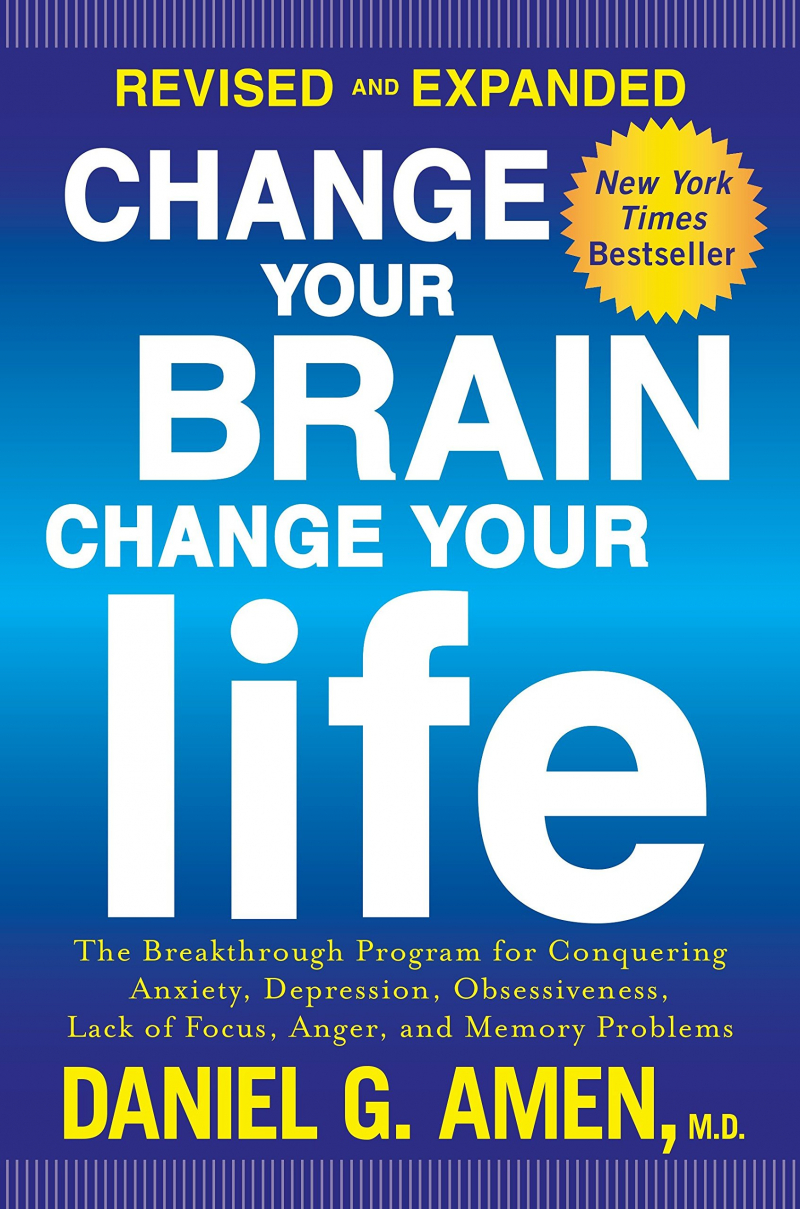
amazon.com 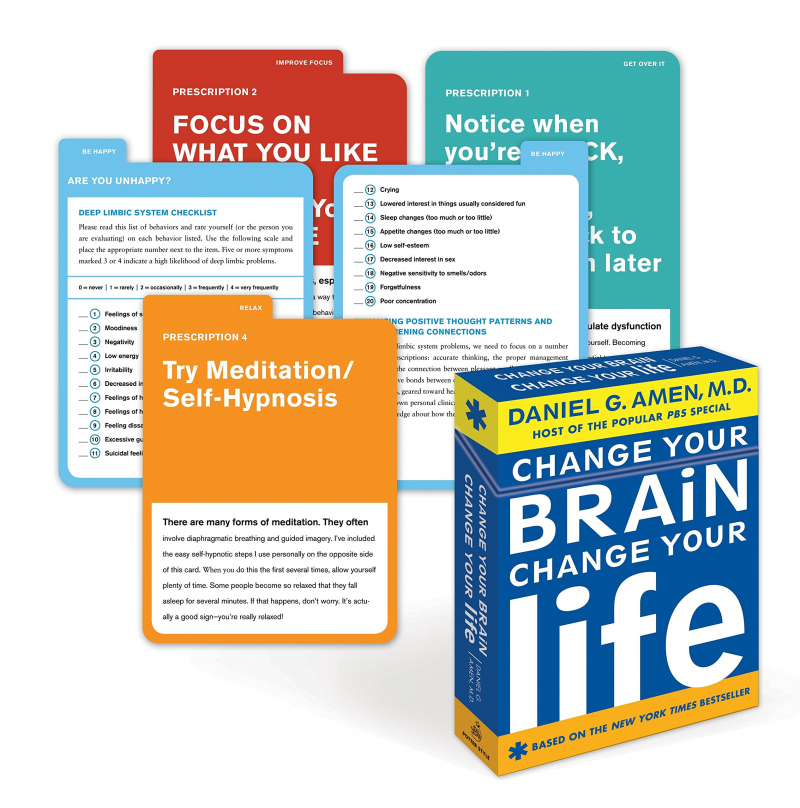
amazon.com -
According to psychotherapist Richard O'Connor, depression, like heart disease, is fueled by numerous and interconnected factors: hereditary, physiological, and environmental. O'Connor focuses on an extra component that is often overlooked in this refreshingly practical book: our own behaviors. You unwittingly become experts in depression. You learn how to conceal it and work around it. You may even accomplish great things, but it will be with constant struggle rather than satisfaction. You deny yourselves of true recovery, deep joy, and healthy emotion when we rely on these strategies to get through each day.
"Undoing Depression" teaches us how to replace depressed behaviors with a new set of skills that are more effective. We already know how to "do" depression, and we can learn how to undo it as well. O'Connor provides new hope—and a new life—to depression patients with a truly comprehensive approach that synthesizes the best of the different schools of thinking on this agonizing disease.
Pros:
- holistic approach
- helps with understanding the disease in others
Cons:
- repetitive
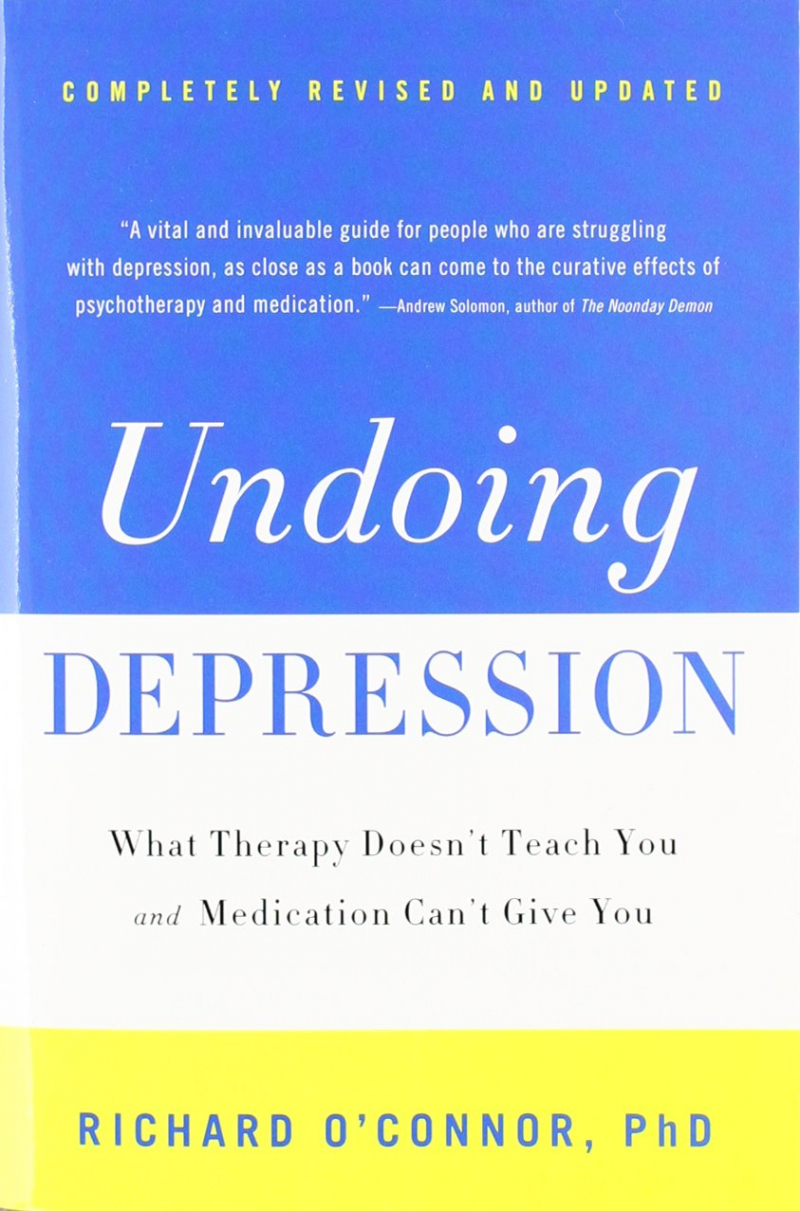
amazon.com 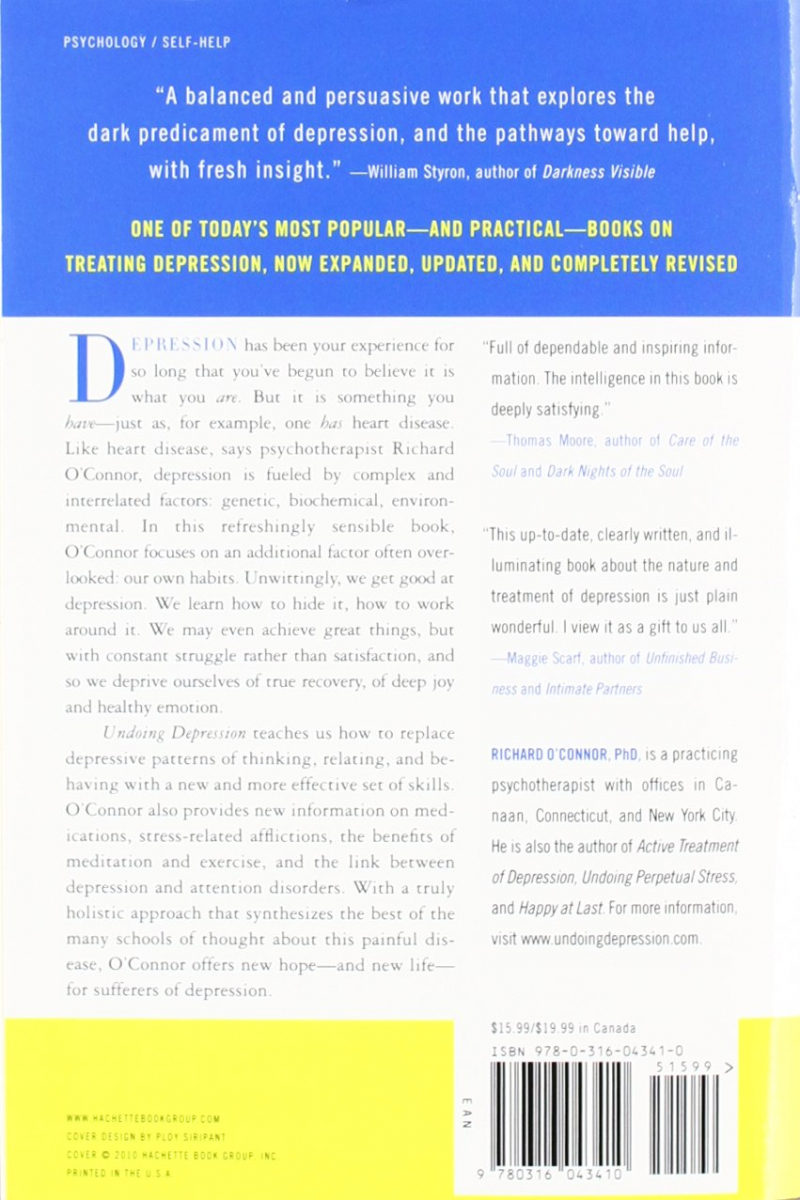
amazon.com -
Stress may deplete our vitality, wreak havoc on our health, and even shorten our lives if we allow it. It makes us more prone to worry and despair, as well as disconnection and sickness. "Full Catastrophe Living", based on Jon Kabat-renowned Zinn's mindfulness-based stress reduction program, shows you how to use medically proven mind-body approaches derived from meditation and yoga to counteract stress, establish a greater balance of body and mind, and stimulate well-being and healing. You may learn to manage chronic pain, promote optimal healing, reduce anxiety and feelings of panic, and improve the overall quality of your life, relationships, and social networks by engaging in these mindfulness activities and integrating them into your life from moment to moment and day today. The second edition includes new research on the science of mindfulness, a revised Introduction, up-to-date data, and an extensive updated reading list.
"Full Catastrophe Living" is a book for everyone, young and old, well and sick, and everyone wanting to live a healthier and saner life in our fast-paced society.
Pros:
- great approach to mindfulness
Cons:
- long-winded (the CDs are more succinct)
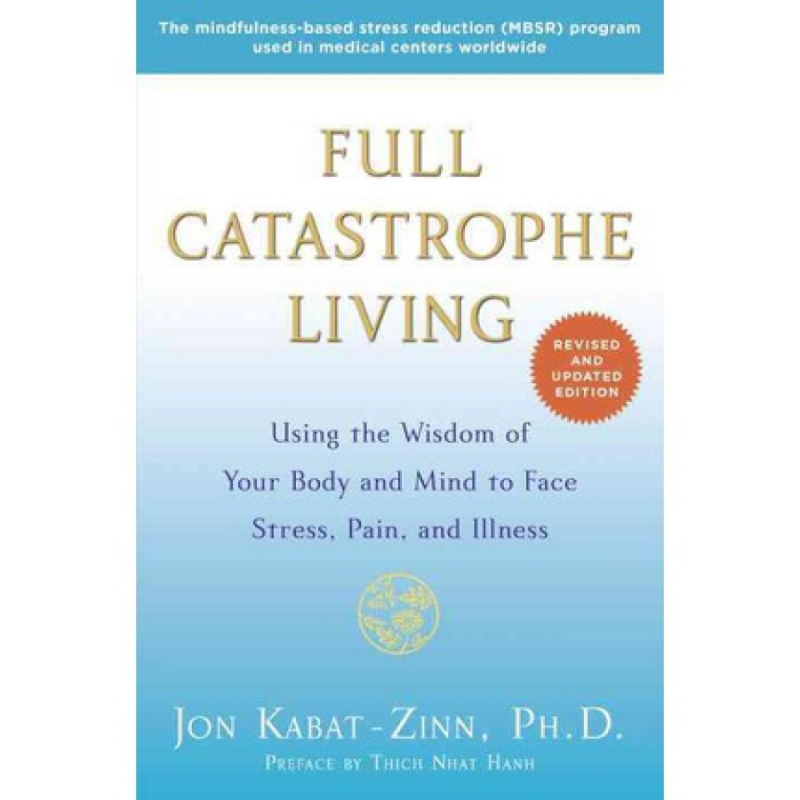
tiki.vn 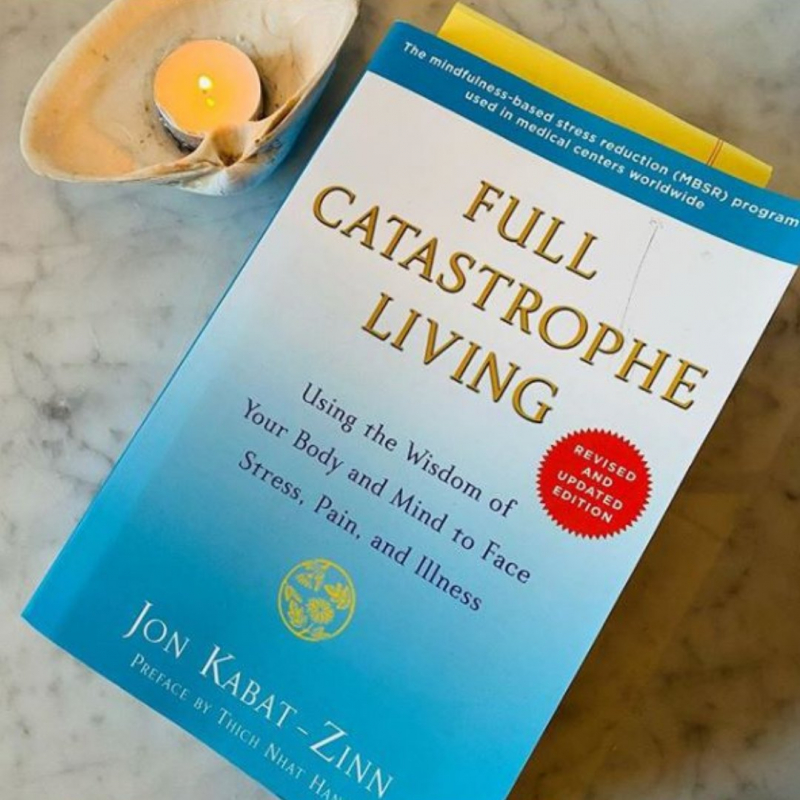
twitter.com -
Jenny Lawson discusses her personal experience with severe depression and a variety of other conditions in Furiously Happy, a humorous memoir flavored with just enough tragedy and sadness to make it worthwhile, and explains how it has driven her to embrace life to the fullest: She said that she had frequently considered that persons with severe depression had created such a capacity for experiencing great emotion that they may be able to experience extreme joy in ways that 'regular people' can never understand, and that is what "Furiously Happy" is all about.
Jenny's readings are always sold out, with fans waiting up to have Jenny autograph their Xanax or Prozac bottles just as frequently as they do their books. Furiously Happy appeals to Jenny's core fan base while also expanding beyond it. There are so many individuals out there who are dealing with sadness and mental illness, either themselves or someone in their family, and in Furiously Happy, they will discover a member of their tribe delivering an encouraging word (via a taxidermied roadkill raccoon). Let's Pretend This Never Happened was nominally about accepting your own oddness, but it was really about family. Furiously Happy is about sadness and mental illness, but it's also about joy, and who doesn't want a little more of that?
Pros:
- humorous and entertaining yet still educational
- relatable
Cons:
- lacks structure
- may seem exaggerated
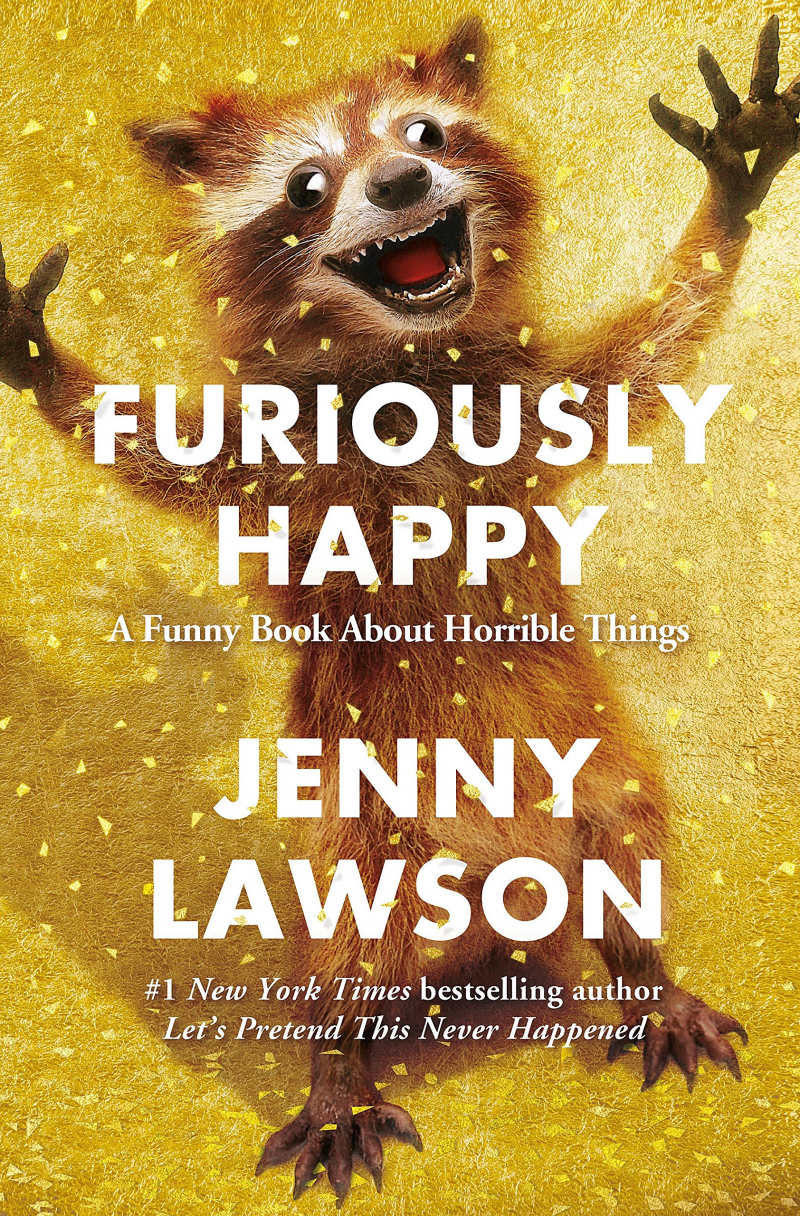
amazon.co.uk 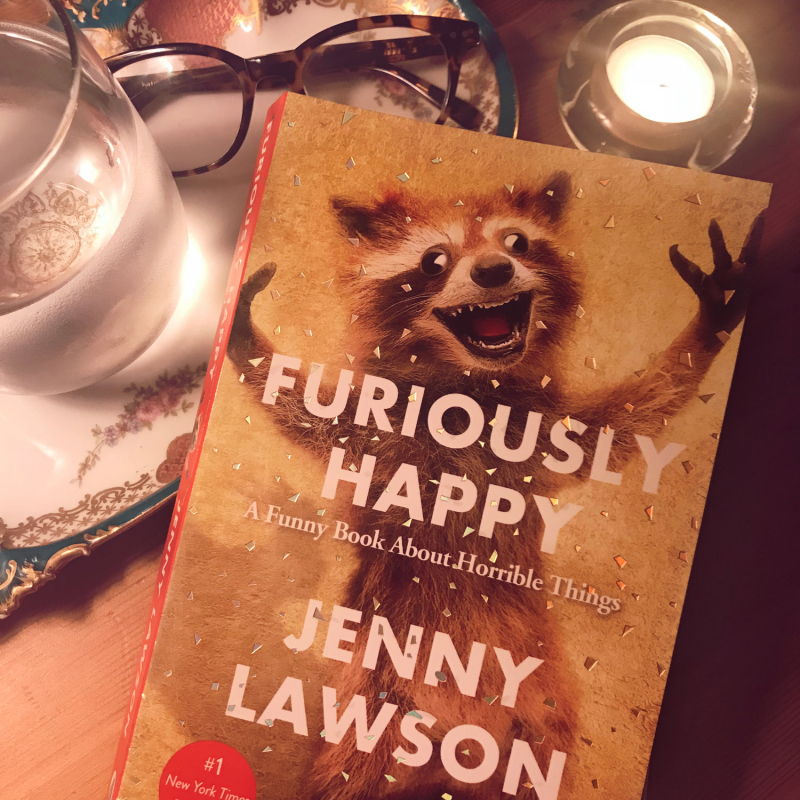
dailycakesandale.com -
Did you know that simply raising your heart rate and breaking a sweat can help you combat stress, improve your mood, fight memory loss, enhance your intelligence, and perform better than ever? Aerobic exercise physically remodels our brains for peak performance, according to the data. John J. Ratey, M.D., embarks on a fascinating and engaging trip through the mind-body link in "Spark", presenting stunning findings to establish that exercise is indeed our best defense against everything from depression to ADD to addiction to aggression to menopause to Alzheimer's.
Spark is the first book to study the relationship between exercise and the brain in-depth, with spectacular case studies (such as the innovative fitness program in Naperville, Illinois, which has ranked this school district of 19,000 students top in the world in science test results). It will forever transform the way you think about your morning run – or, for that matter, the way you think in general.
Pros:
- clear evidence about the benefits of exercises
Cons:
- a bit repetitive
- technical terms and information
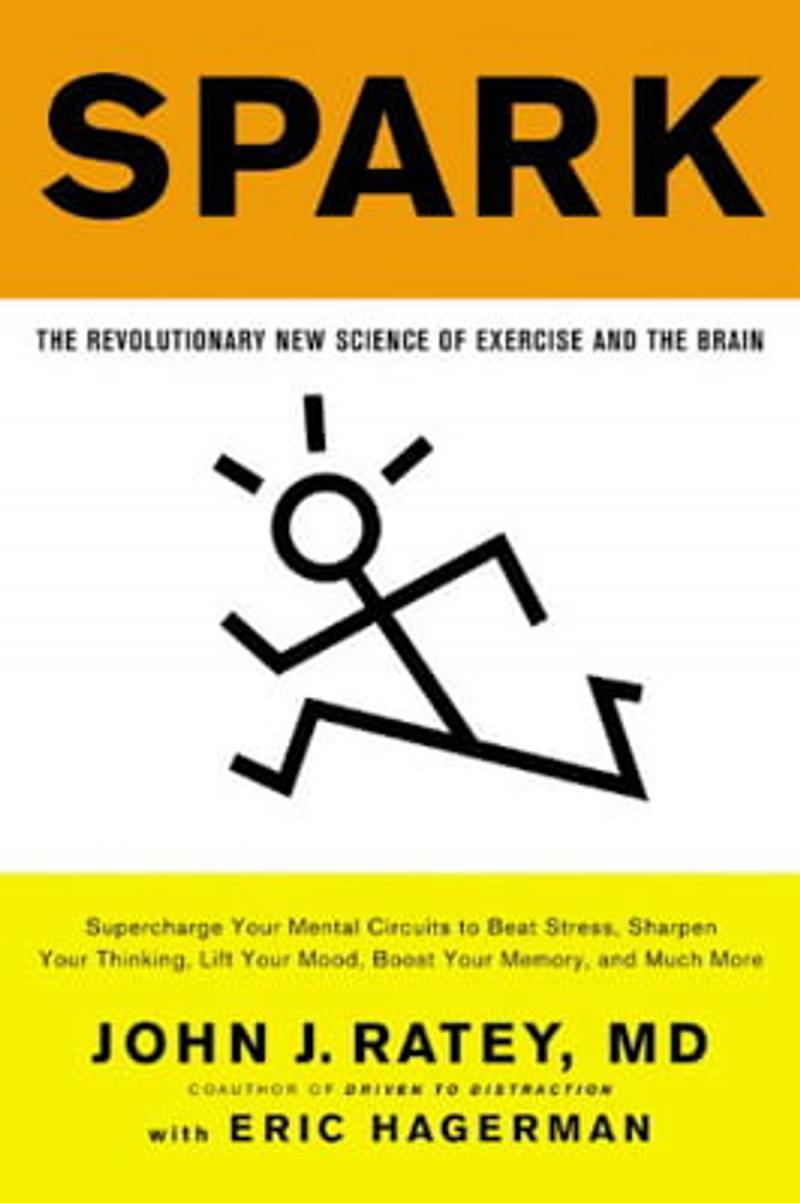
tiki.vn 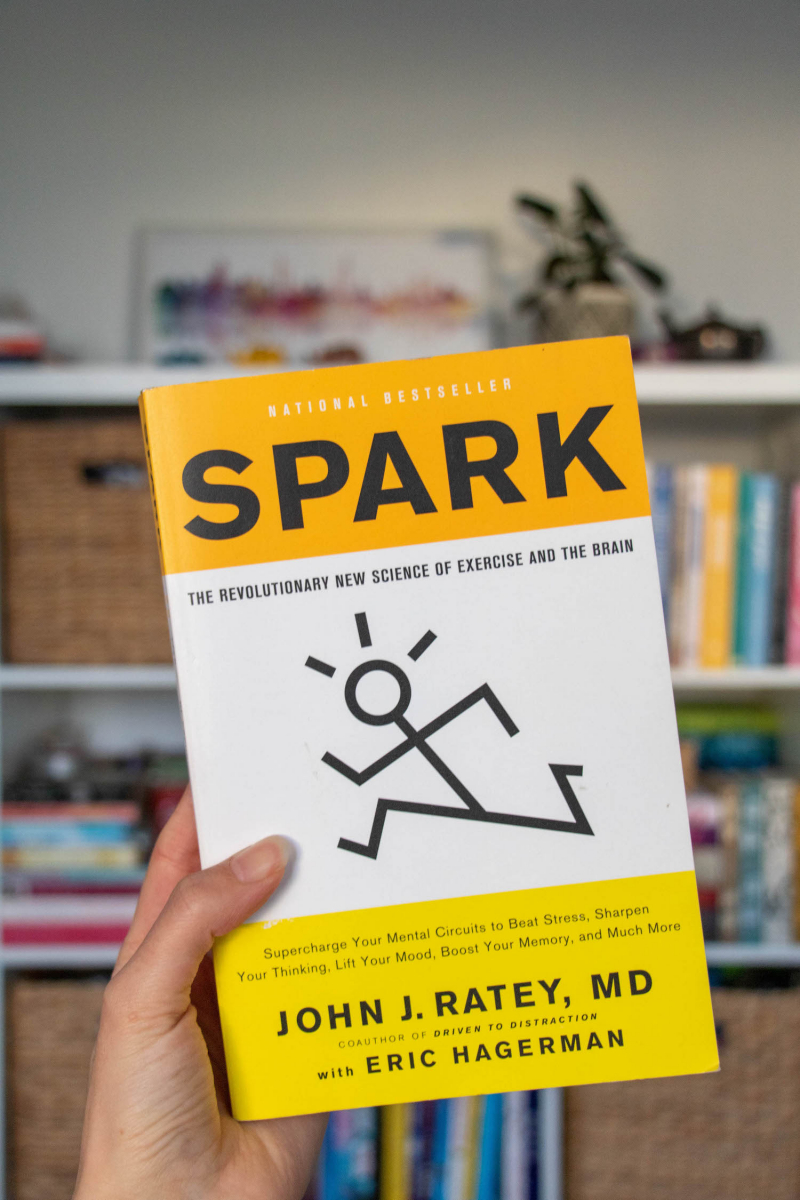
shahnasarpi.com




















